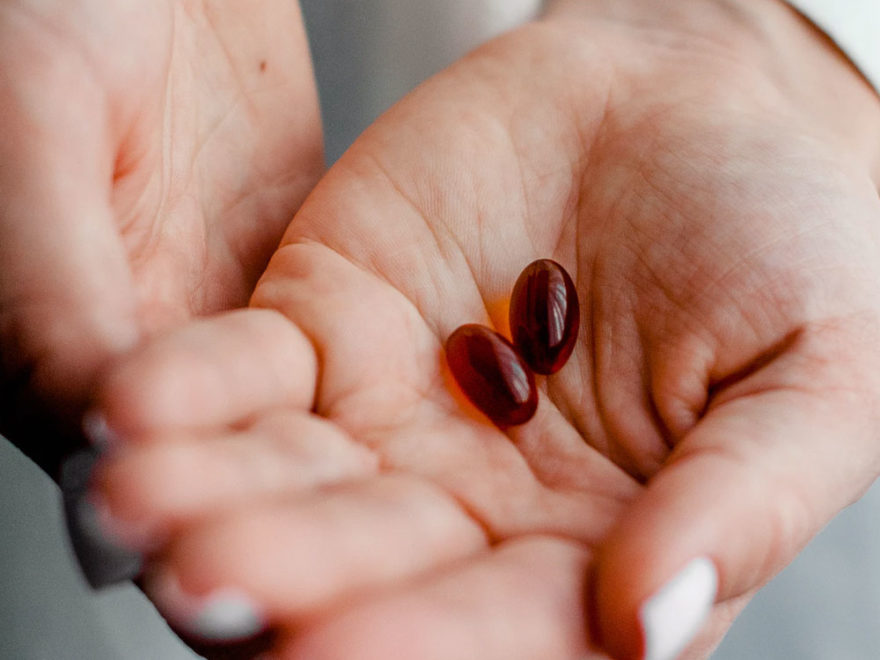Whenever you’re taking a new supplement, it’s important to look at any potential side effects. The problem is many people who start taking new supplements will only look at the benefits and not any potential side effects. However, you have to keep in mind that everyone’s body is different.
One Supplement Can Affect Everyone Differently
Remember that everyone’s body is different. One person might suffer from intense side effects to a supplement, while others might feel no side effects at all. On the other hand, one person might not feel any benefits to taking a supplement, while someone else’s quality of life substantially improves.
The unfortunate reality is some people have a higher sensitivity to the side effects of drugs. Variations in metabolism, body size, body weight, and age all account for how someone reacts to supplements. In this case, we’re looking at the side effects of iron supplements. However, before we look into its side effects, let’s take a look at why people would take them in the first place.
What Are Iron Supplements?
The first thing you think about when you hear of iron supplements is someone who suffers from an iron deficiency. When your body is low on iron, then it has a more challenging time creating red blood cells. Not only do they have a more challenging time providing red blood cells, the hemoglobin it needs to function properly, but it also leads to your muscles not getting a proper amount of oxygen.
Iron deficiency is linked to fatigue, difficulty breathing, heart palpitations, headaches, restless leg syndrome, and other uncomfortable symptoms. There are a number of people who could benefit from taking iron supplements.
- Cancer patients
- People on a plant-based diet
- People who suffer from blood disorders
- Athletes
- People who donate blood often
Cancer Patients
Chemotherapy treatments often force low levels of iron in a cancer patient. It’s called chemotherapy-induced anemia, and it can make it difficult for different parts of the body to receive oxygen. Healthy and functional blood flow is something every cancer patient needs, but the treatment is often detrimental to iron levels.
People On A Plant-Based Diet
Vegetarians and vegans eat a healthy plant-based diet, but there’s not much iron found in plants. Not only that, but some nutrients can inhibit the absorption of iron. In order to get the necessary amounts of iron, one would need to consume an inordinate amount of plants every meal, which isn’t realistic.
People Who Suffer From Blood Disorders
Anyone who suffers from any kind of bleeding disorder is at risk of low iron. During blood loss, there isn’t enough oxygen distributing itself throughout the body. That’s why taking supplements for bleeding disorders can help keep oxygen flowing through the body.
Athletes
The more you sweat, the more you lose iron through your sweat. Athletes, in particular, are at risk of iron-deficiency depending on how intense their workouts are. Not only that but, the more you workout, the more you’re breaking down red blood cells. When athletes are low in iron, they have a harder time metabolizing energy and transporting oxygen during exercise.
People Who Donate Blood Often
This one may be a bit more obvious, but people who often donate blood need to keep their level of iron high so the body can create more blood cells to regenerate the ones lost. It’s also important to have healthy iron levels before donating blood, or the low levels of iron afterward will leave you tired or fainting.
While this is all well and good, iron isn’t for everyone. If you plan on taking iron supplements, you need to be aware of the potential side effects.
Stomach Pain
Some people experience digestive distress when taking iron supplements because of how rough iron is during digestion. While it’s easier to take iron on an empty stomach, you need to be wary of possible diarrhea, cramps, or nausea. Other gastrointestinal issues possibly caused by iron supplements are bloating, gas, and acid reflux.
Headaches
Headaches are a normal occurrence when taking new supplements. As your body is adjusting to taking a new supplement, there is a possibility it can trigger a headache. However, it’s better than the intense headaches of iron-deficiency, so the occurrence of headaches may decrease as the body finally adjusts to a regular flow of iron.
Dizziness
Dizziness with iron supplements is a double-edged sword. On one side, being iron deficient can cause dizziness, but on the other, taking iron supplements to fix the iron-deficiency can make you dizzy. If the dizziness is chronic, it might be time to see your physician to ensure no other medical issues are going on.
Heart Palpitations Or Heart Attack
One of the scarier side effects of taking iron supplements is the risk of heart palpitations or a full-blown heart attack. Taking too much iron can cause the blood vessels to tighten and dramatically increase a heart attack risk. Even if you’re not taking an excessive amount of iron supplements, the standard dose can still cause irregular heartbeats, also known as heart palpitations.
It’s always important when taking any new medication to monitor your side effects in case you need emergency medical attention. As your body adjusts to iron supplements, the side effects may start to disappear. Unfortunately, that’s not always true across the board, depending on the individual. Make an appointment to see your regular doctor if you have any concerns about taking iron supplements or seeing if you’re the right candidate to start supplementing iron.

